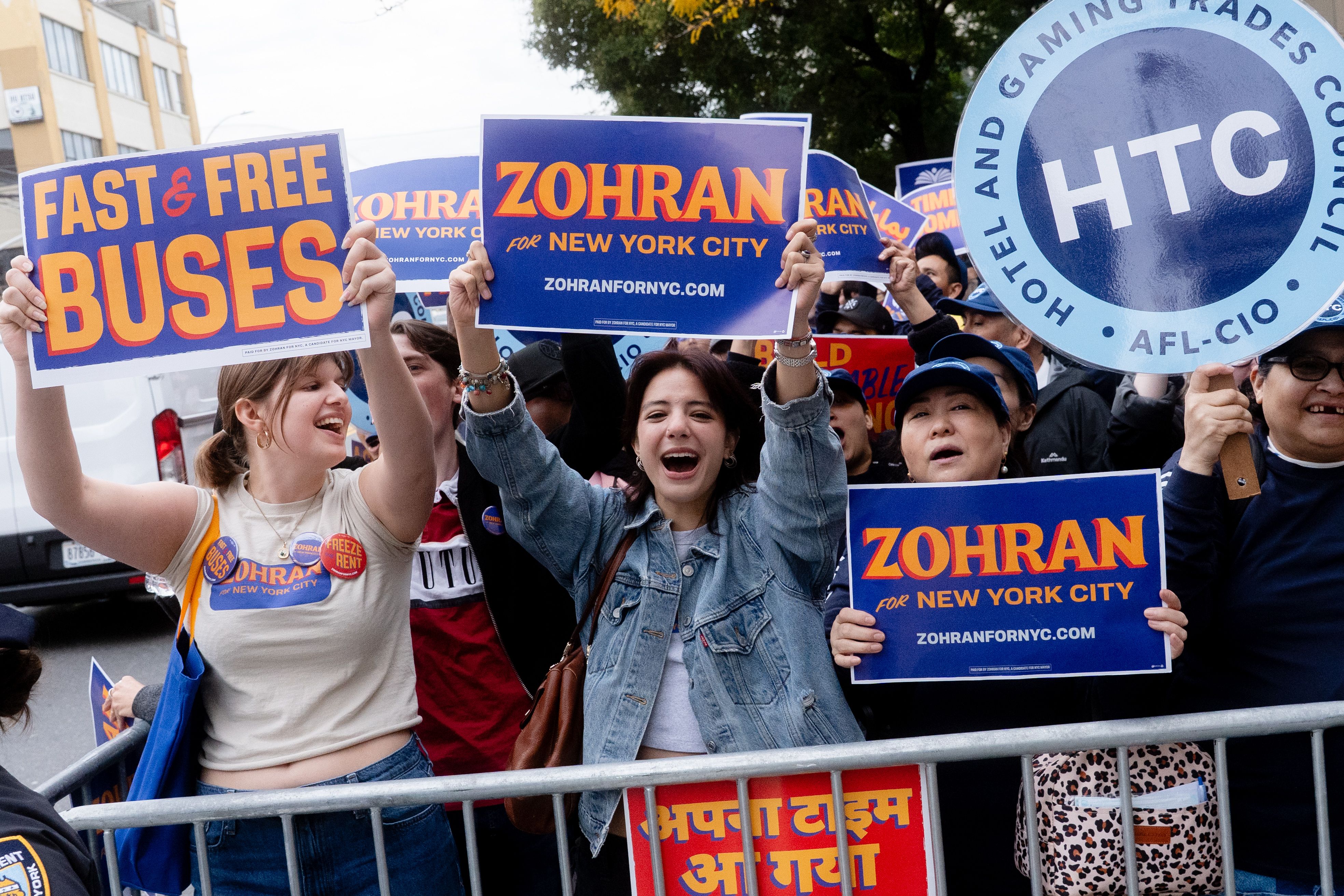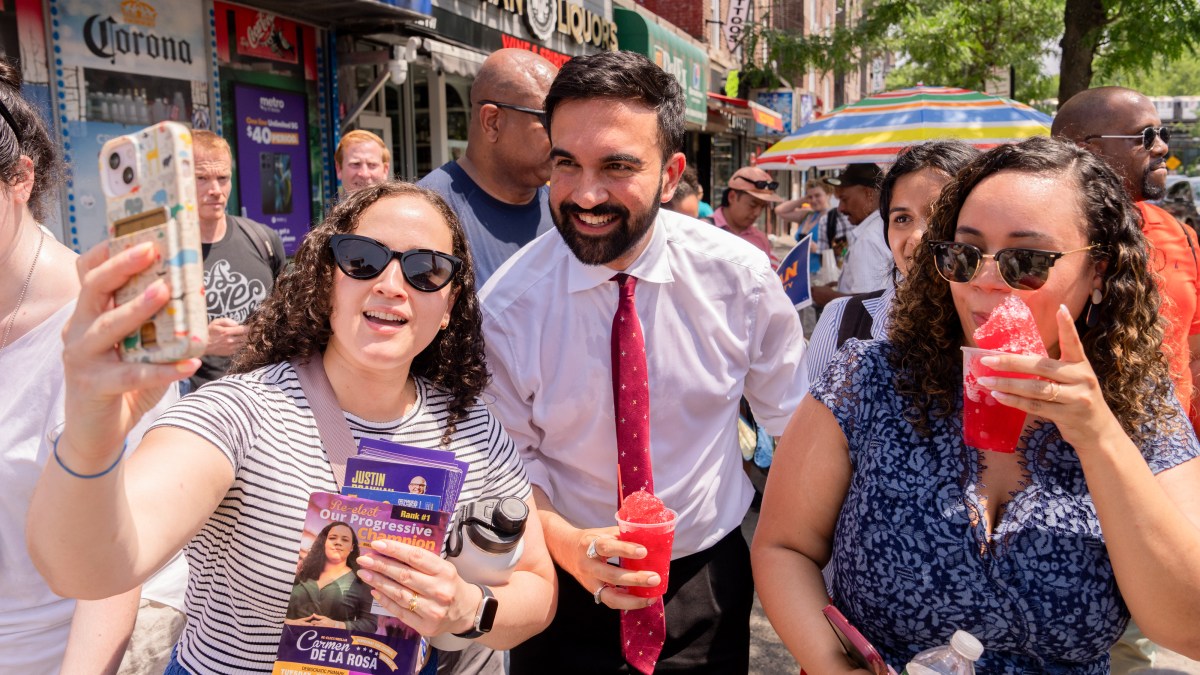A recent survey by the Cato Institute and YouGov reveals that 62 per cent of Americans aged 18–29 say they hold a “favourable view” of socialism, and 40 per cent agree that “violence against the rich can be justified”.
Such findings, along with 34-year-old Zohran Mamdani’s likely victory in New York City’s upcoming mayoral race, has left many asking why socialism is now so popular among young Americans.
There are two reasons for this.
First, it is not that the country’s young people suddenly became socialists. It is that older generations were turned off by socialism for specific historical reasons — they remember the final years of the Cold War, the fall of the Soviet Union, the triumph of capitalism in the 1990s. If that period shaped your political outlook, it is hard to hear the word “socialism” without thinking of failure.
For younger Americans, the story is different. I am 35, one year older than Mamdani, and I can tell you that Millennials and Gen Zers have not really been taught about the failures of socialism.
I will point out, with a bit of hyperbole, that in US high schools we get 155 hours on Hitler, three minutes on Stalin, zero on Mao and zero on Pol Pot.
And socialism is an idea that sounds good on face value. It promises to take from the rich and give to the poor. That means not only “free stuff” for everyone, but also a sense of fairness. And the human desire for fairness runs deep. In fact, the more equal a society becomes, the more acutely aware people become of any remaining inequalities. The interesting question is not why so many support it, but why people reject it.
• NYC mayor election: latest polls and predictions
This is known as the “Tocqueville Paradox,” named after the 19th-century French diplomat Alexis de Tocqueville who observed that as societies enjoy more economic and moral progress, people get more frustrated by injustice. This explains how today’s society can be outraged at minor social injustices, despite being surrounded by unprecedented equality.

Mamdani with young supporters in Prospect Park, New York
STEPHANIE KEITH/GETTY IMAGES
Today’s young adults live with a level of convenience and abundance unmatched in history. Flights are affordable, meals arrive at the tap of a screen and college graduation rates have skyrocketed. They enjoy endless entertainment for a few dollars a month, cheap and fashionable clothing and handheld devices that deliver limitless information. Yet despite all this progress, homeownership in major cities remains out of reach. That matters.
There is a second reason why the popularity of socialism is growing: downward social mobility among educated young people. The sociologist Musa al-Gharbi, in his 2024 book We Have Never Been Woke: The Cultural Contradictions of a New Elite, argues that the decline in status among children of privilege is one of the key contributors to radical political sentiment.
To outsiders, this may seem like a trivial problem for the affluent, but the basic promise of socialism carries special weight for those who thought they were born to succeed and now see that success slipping from their grasp.
These young people, born into privilege, came of age after the Great Recession. They saw job security vanish as technology changed the economy. They discovered that the elite jobs they were promised in media, the arts, academia and politics were scarce. Al-Gharbi writes that these experiences fuelled the “Great Awokening”. Disillusioned strivers have turned their anger toward the system that failed them, along with the fortunate few who managed to hold on to their place in society.

Zohran Mamdani is popular with young voters — and has used social media platforms like TikTok to reach them
DEREK FRENCH/SHUTTERSTOCK EDITORIAL
Mamdani himself is a member of this downwardly mobile generation of elite aspirants. Raised by a Columbia professor father and acclaimed filmmaker mother in a comfortable faculty apartment on Riverside Drive, he attended the private Bank Street School for Children, which costs up to $66,147 a year. His alma mater is Bowdoin College in Maine, where there are more students from families in the top 1 per cent of the income scale than there are from the entire bottom 60 per cent.
Before being elected to the New York state assembly in 2020, Mamdani only managed to string together three years of employment.
This includes a short-lived rap career and a spell on a film project for his mother, Mira Nair, the director of Monsoon Wedding. He has joked: “You know, nepotism and hard work goes a long way.” Now, through a modern social-media-driven campaign that values style over substance, he has finally found success.
Unlike the working classes they claim to represent, today’s downwardly mobile elites still possess the advantages of their upbringing. They have degrees, contacts and cultural capital. Given these advantages, it is no wonder that their concerns — such as not being able to buy an apartment in Manhattan — which seem trivial to most Americans, dominate the national conversation.
• Poppy Sowerby: New York v London… which is really better for Gen Z?
Some of this decline in status is voluntary. As al-Gharbi points out, many young college graduates would rather be freelance writers or part-time professors than manage a restaurant. The dream is freedom and creativity. The reality is disappointment when success and wealth do not follow.
Once upon a time, their education and résumés guaranteed them prestige. Now, many educated young people feel themselves losing ground. Socialism provides a comforting solution. It explains failure as injustice and promises redemption through redistribution.
“Take from the rich and give to the poor” is one of the oldest and most powerful ideas in politics. It is simple, moral and emotionally satisfying. Competing with it has never been easy. And any movement that hopes to win young people must offer a message that sounds just as good.
Rob Henderson is a senior fellow at the Manhattan Institute and the author of Troubled: A Memoir of Foster Care, Family, and Social Class

